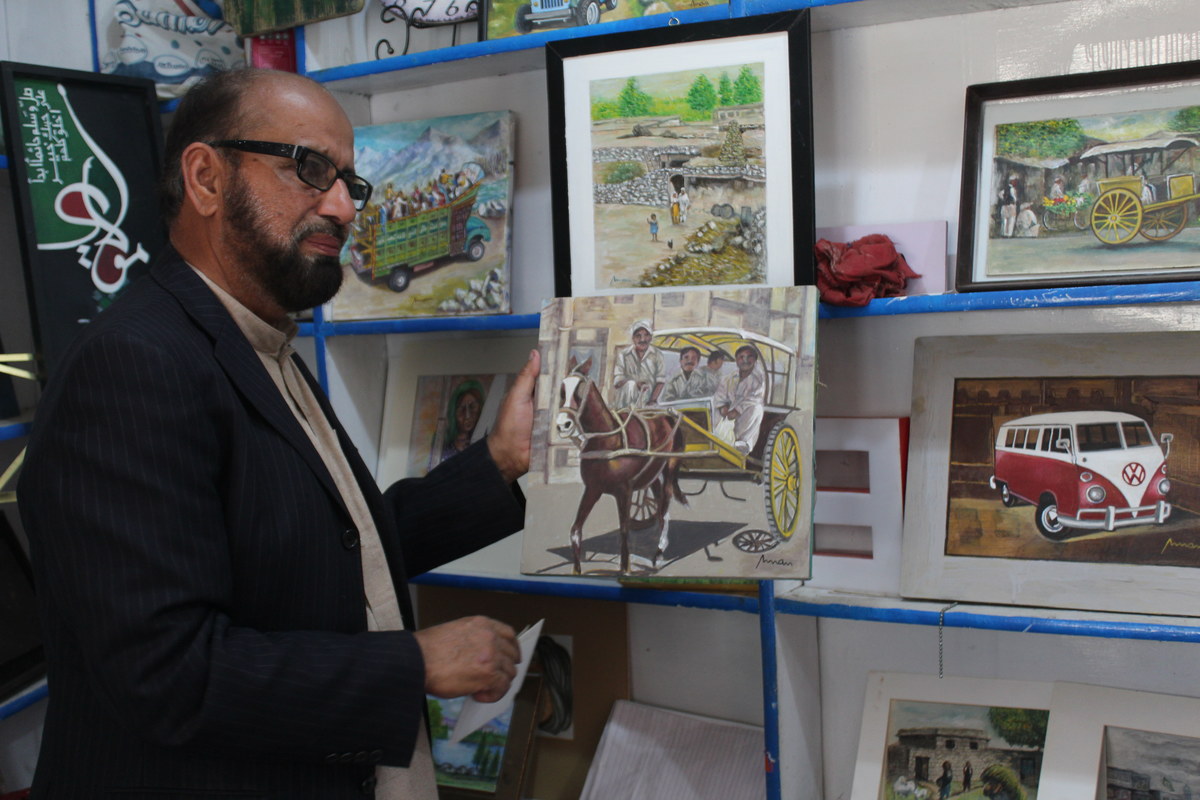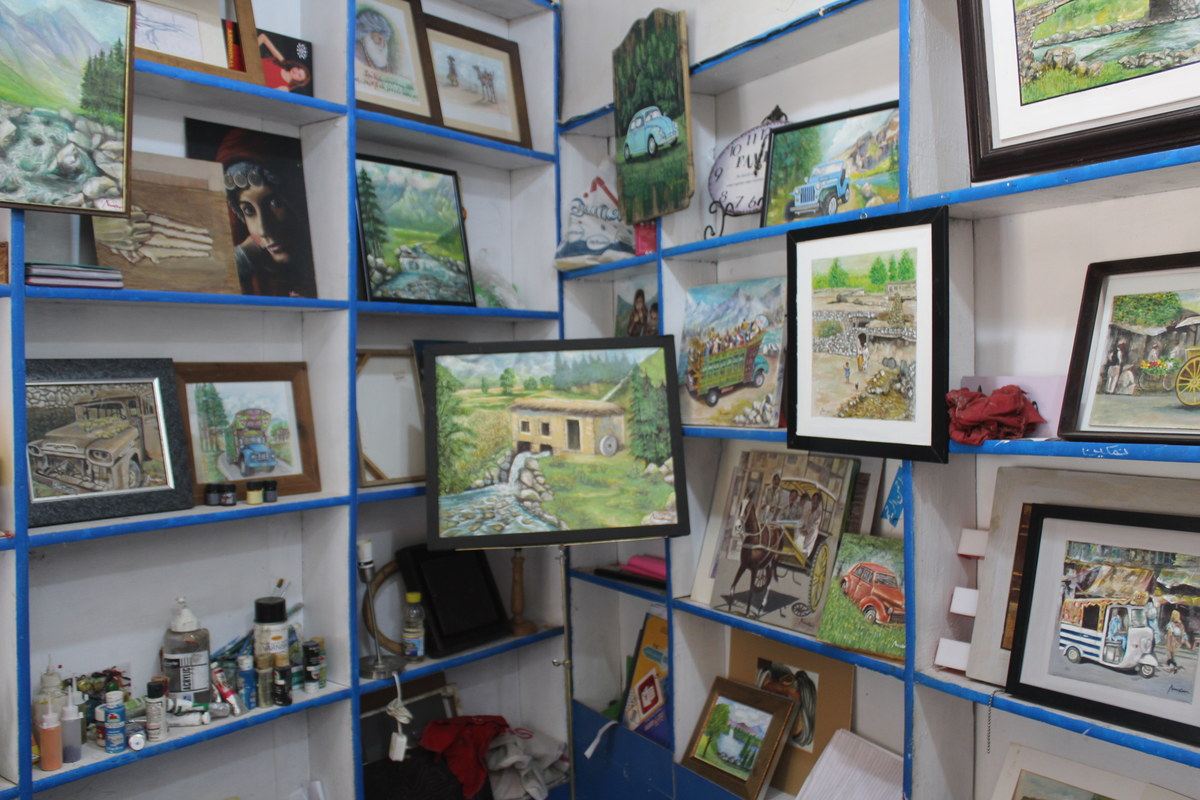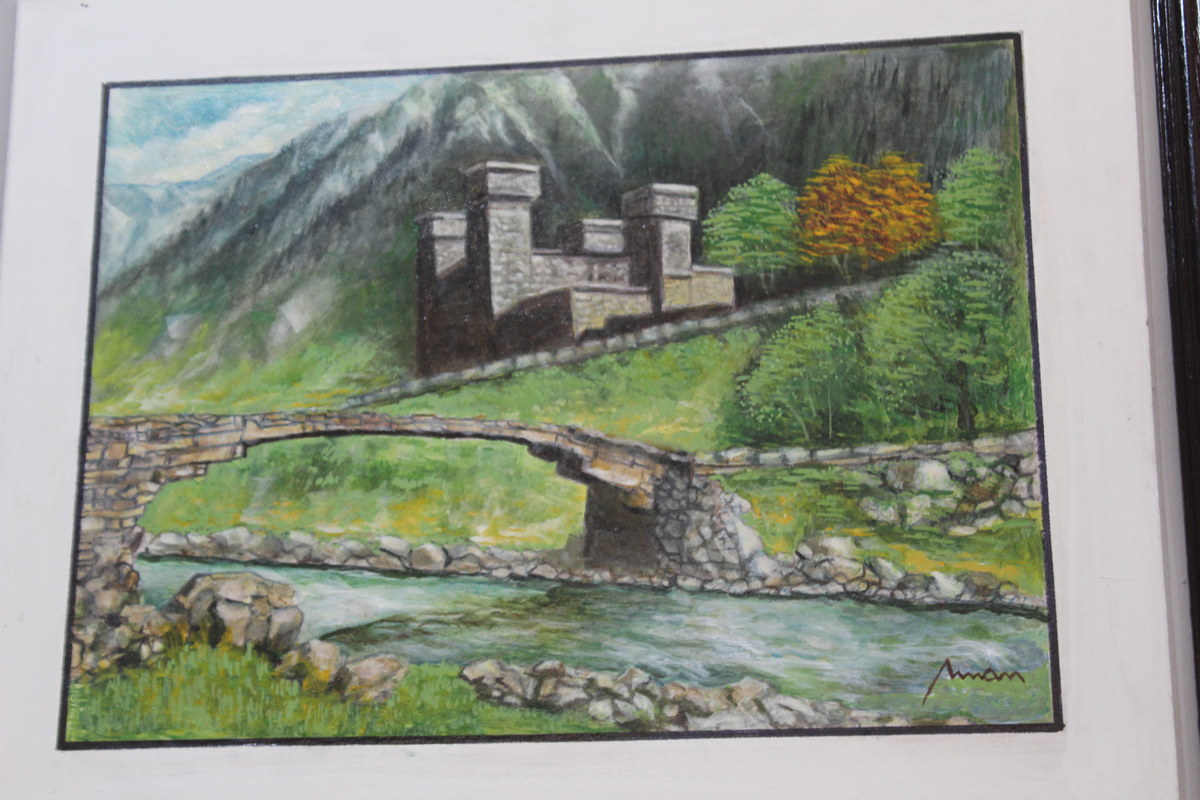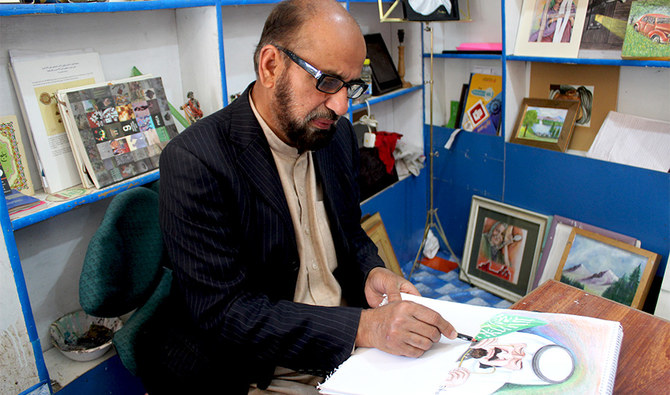SAIDU SHARIF: Amanullah Khan was always inspired by his picturesque surroundings. An artist from Swat district in Pakistan’s northwestern Khyber Pakhtunkhwa province, he painted hundreds of colorful landscapes to capture the beauty of his mountainous hometown that mesmerized him since childhood.
“I was obsessed with art from the beginning and wanted to recreate the splendor of the area,” said the 58-year-old artist while talking to Arab News at his small studio in Saidu Sharif.
Father of four, Khan said he was taught how to hold a paintbrush by Akhtar Munir, a visual artist who promoted latest films by drawing their images on a cinema in Swat. However, Khan decided to use his craft for a different purpose: Not only was he interested in capturing the magnificence of the lush green mountains and valleys but also sought to preserve the history and culture of the place through his paintings.
“My love for natural beauty forced me to paint some of the images that you see here,” he said while pointing at different images in his studio. “But I also wanted to document the cultural heritage of this scenic valley for our children and spread the message of peace that this place has always represented.”

Amanullah Khan, an artist from Swat, is holding a painting of a horse-drawn carriage at his studio in Saidu Sharif on February 27, 2020. (AN Photo)
Khan added it was important to emphasize the last bit since the valley made headlines in recent years after it was captured by local Taliban militants who beheaded their enemies and publicly flogged people. The group ruled the region between 2007 and 2009 before the army launched a military operation to reclaim the territory.
Khan maintained that the darkness of Taliban rule was not in keeping with the character of the place. According to historical accounts, he said, Swat emerged as a princely state in the British Indian Empire in 1926. Back then, it was quite underdeveloped with no education institutes or literate people.
The situation changed within a few years under its local ruler, and the area witnessed a sharp incline in its literacy rate. In this context, he noted, it was also fascinating that the valley produced the world’s youngest Nobel Laureate, Malala Yousafzai, who fought for girls’ education under the Taliban rule and survived a bid on her life in October 2012.

This picture shows a collection of paintings displayed by Amanullah Khan, an artist from Swat, at his studio in Saidu Sharif on February 27, 2020. (AN Photo)
Swat also progressed in other ways as a princely state since it laid out an elaborate road network which helped its economy by strengthening its tourism industry. However, its ruler acceded to Pakistan in 1969, though most local residents fondly remember his time to this day.
Khan noted that Swat had undergone significant changes over the years.
“This place is one of the most attractive tourist destinations in Pakistan,” he said. “However, most people know very little about the valley and its past. My aim is to bring them face to face with its cultural heritage through my paintings.”
The only other place that caught his fancy was Saudi Arabia where he spent considerable time. It was also during this period that Khan started painting portraits of prominent members of the Kingdom’s royal family.

This picture shows a collection of paintings displayed by Amanullah Khan, an artist from Swat, at his studio in Saidu Sharif on February 27, 2020. (AN Photo)
“After living for three decades in Saudi Arabia, I was inspired by its cultural and tribal traditions,” he continued. “I particularly liked how Arab men danced on special occasions like Eid Al-Fitr.”
Khan’s work is also recognized by people in his hometown.
“I have a lot of respect for him since he reminds us of what Swat achieved as a princely state,” said Iftikhar Ahmad while talking to Arab News.
“Plenty of art lovers come to the valley and many of them like my work,” Khan told Arab News. “But due to my financial constraints, I am unable to arrange an exhibition to introduce my paintings to a larger Pakistani audience.”


















